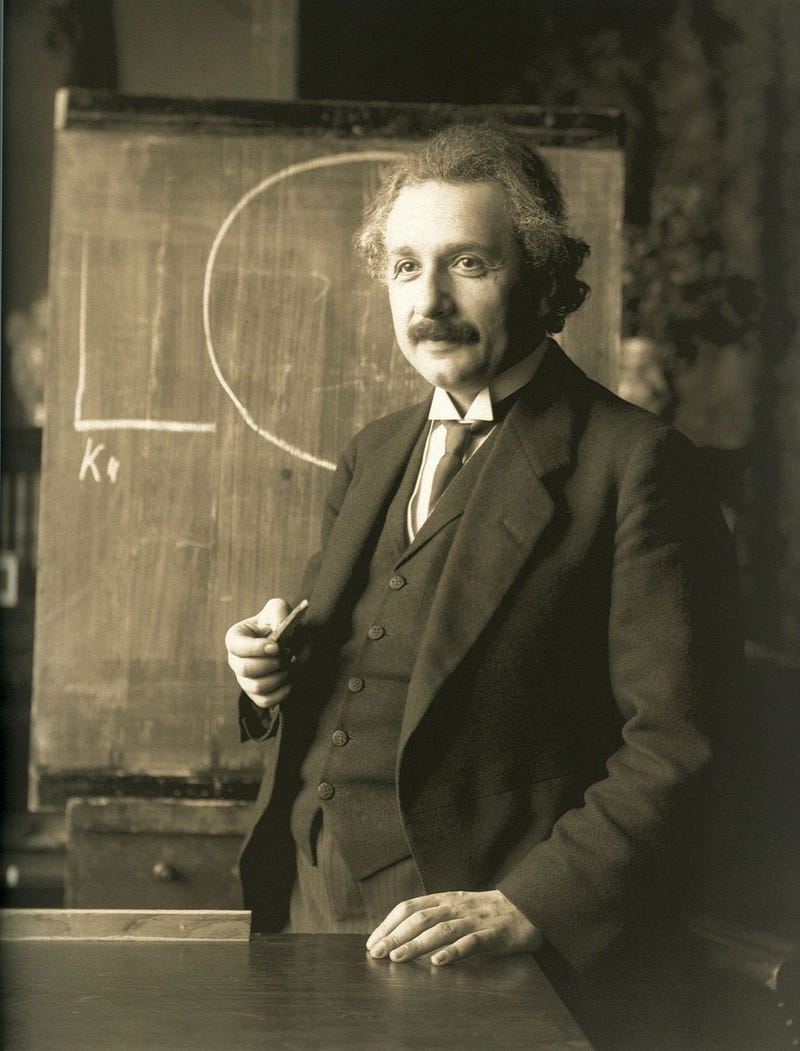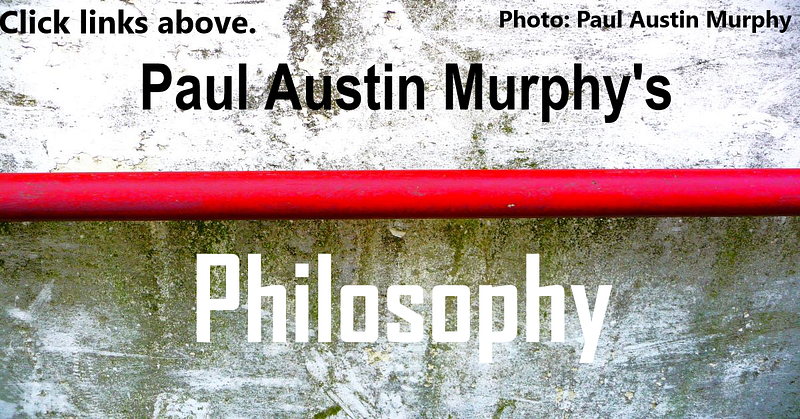Exploring Einstein's Perspective on Science and Induction
Written on
Chapter 1: The Traditional View of Science
Albert Einstein once characterized the conventional understanding of science as a “continuous process of induction” and a “classified catalogue.” He argued that this perspective overlooks the crucial roles of intuition and deductive reasoning.

In 1916, Einstein provided insight into what he believed many traditional scientists and the general public thought about science. He emphasized the focus on induction, stating, “From a systematic theoretical point of view, we may imagine the process of evolution of an empirical science to be a continuous process of induction.” This perspective suggests that science is fundamentally inductive, which is often assumed to be the prevailing view among scientists and philosophers alike. However, most laypeople do not engage in philosophical discussions about science and seldom use terms like “induction.” Nevertheless, philosophers contend that individuals may grasp concepts without necessarily articulating them.
Instead, it is likely that both traditional scientists and the public prioritize observations. Einstein elaborated, “Theories are evolved and are expressed in short compass as statements of a large number of individual observations in the form of empirical laws, from which the general laws can be ascertained by comparison.” This indicates that the “individual observations” are frequently believed to drive the scientific process.
While empirical research could clarify what scientists and laypersons genuinely believe, anecdotal evidence suggests this is a typical stance. In this simplistic view of science, scientists are seen as merely observing phenomena or conducting experiments and then noting the outcomes.
Einstein argued that scientists compile their observations into a collective understanding, extracting “empirical laws” from these observations alone. Yet, numerous additional factors are necessary to derive empirical laws solely from observations. The complexity increases further when general laws are formulated from these empirical laws.
Thus, Einstein accurately identified the naivety of this view of science. He stated, “Regarded in this way, the development of a science bears some resemblance to the compilation of a classified catalogue. It is, as it were, a purely empirical enterprise.” This perspective implies that scientists are often perceived as cataloguing nature, akin to “stamp collecting” in scientific terms, as is noted in some interpretations of Francis Bacon's philosophy of science. This method was thought to ensure that everything remained scientifically valid — or empirical.
However, one might question the rationale behind scientists cataloguing specific elements of nature. Why focus on certain observations and not others? What led them to compile these particular findings? It suggests that prior influences existed beyond the observations themselves that shaped those very findings.
Einstein criticized this overly simplistic viewpoint, stating, “But this point of view by no means embraces the whole of the actual process; for it slurs over the important part played by intuition and deductive thought in the development of an exact science.” While Einstein did not entirely dismiss the traditional view, he acknowledged that observations and cataloguing are components of scientific inquiry. Still, he insisted that they do not encompass the entire process, emphasizing the significance of intuition and deductive reasoning.
He further noted, “The theory finds the justification for its existence in the fact that it correlates a large number of single observations.” This statement perfectly encapsulates a specific type of inductive reasoning — enumerative induction. For instance, from observing many white swans, one might conclude that “all swans are white.” Alternatively, a scientist may formulate a theory regarding swans and their color based on these observations.
Einstein had already mentioned “induction” in a critical context when he stated, “we may imagine the process of evolution of an empirical science to be a continuous process of induction.” This raises the question of how a scientist correlates a multitude of individual observations. The ability to draw conclusions based on numerous observations implies that existing theories are necessary to enable these correlations. Essentially, established theories would be essential for deriving new ones.
Chapter 2: Intuition and Deductive Reasoning in Science
The video title is "Remembering Einstein's groundbreaking contributions to science • RFI English - YouTube." In this video, viewers can explore Einstein's influential thoughts and lasting impacts on scientific philosophy.
Einstein's emphasis on “intuition” and “deductive thought” may seem unusual, as many contemporary philosophers and scientists prioritize theoretical frameworks over these elements. Nonetheless, theory is often deeply intertwined with intuition and deductive reasoning.
To understand Einstein's use of the term “intuition,” it's important to recognize that in philosophy and mathematics, it often carries specific meanings. It’s possible that Einstein employed it in a more general sense, referring to speculation or theorizing that transcends mere observation. Intuition can be crucial for interpreting observations and forming the basis for future inquiries.
Regarding “deductive thought,” it generally implies deriving conclusions from observations or statements about them. Observations do not exist in isolation; scientists need to interpret them. Additionally, they can deduce other conclusions based on their findings, as Isaac Newton suggested.
Einstein remarked that “the investigator develops a system of thought which, in general, is built up logically from a small number of fundamental assumptions, the so-called axioms.” This suggests he viewed physics as a form of deductive logic, where observations or fundamental assumptions lead to theories. Einstein described such a structured approach as a “theory.”
While much of Einstein's critique of the traditional view of science may appear overly simplistic, it reflects a common tendency in the philosophy of science to create neat categorizations. Scientific thinking and practice are often more complex than these retrospective simplifications imply.
